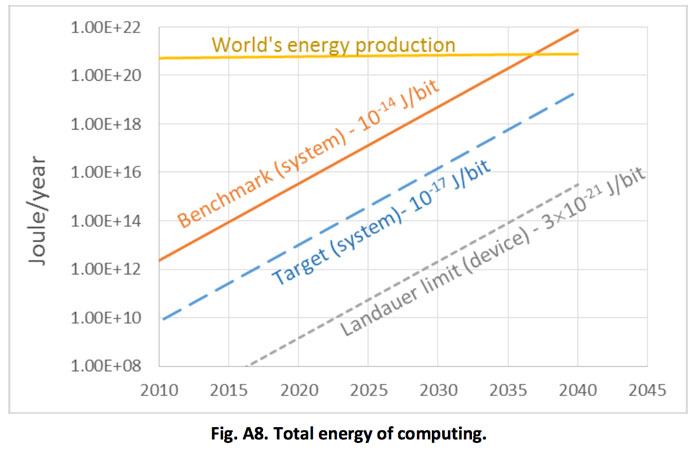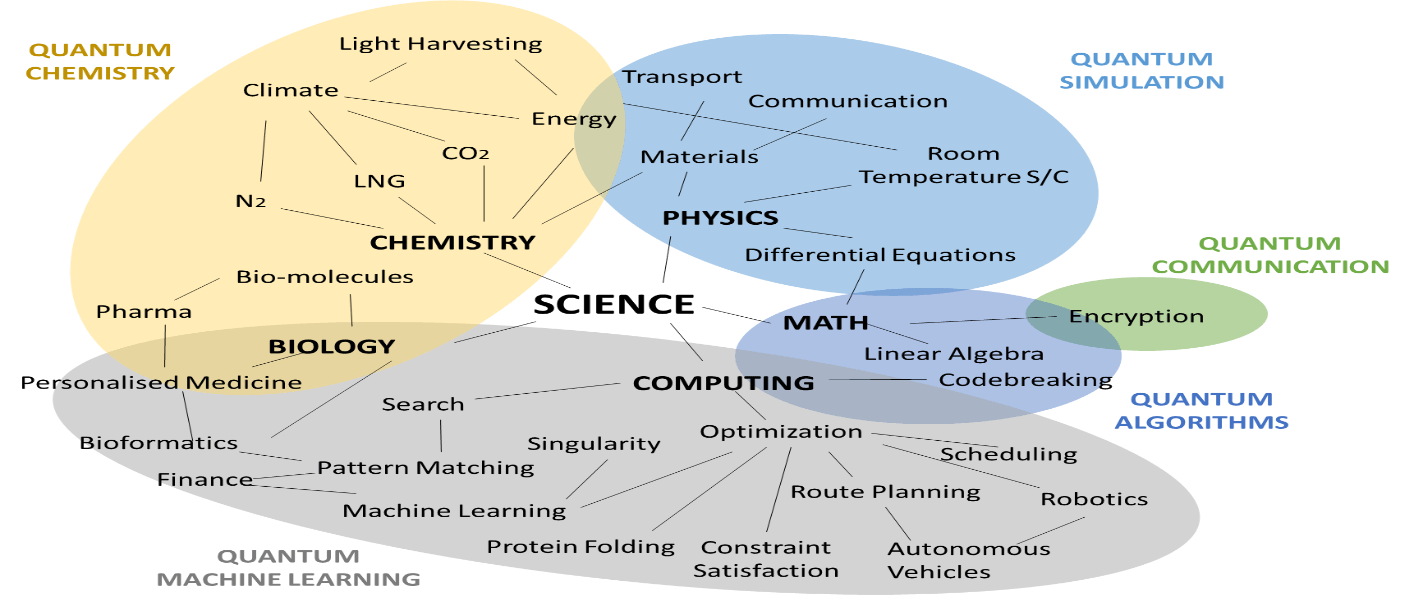According to a report by the Semiconductor Industry Association, we will run out of electricity to power computers by 2040 if we don’t radically improve computing efficiency. This is one of the many reasons why scientists are striving to use quantum computing to advance widely applicable algorithms, including deep learning.

The benefits of leveraging quantum mechanics for computing can be captured through Schroedinger’s cat. While the idea that a cat can be both dead and alive (NOT dead or alive)– its state is unknown until you open the box that it is in– is false on the scale of a cat. It is true that particles can exist in multiple states at once on the subatomic level, their state not becoming clear until they’re measured.
This is called superposition, and it seems quite insane, but we often observe “superposition” when we have a crush on someone: it feels like your crush is giving you mixed signals and that they like and hate you at the same time. You can’t really know which state it is until you ask them.
While superposition is rather annoying in dating, it’s a powerful property in quantum mechanics that scientists are leveraging to make computers that operate 100 million times faster than your laptop.
This speed of computation is possible in quantum computing, because unlike normal bits which can only exist as a 0 or 1, quantum bits (qubits) can exist as a 1, 0, or 1 and 0 at the same time. This means much greater storage capacity and the ability to do many calculations at once.

Quantum computing is being applied to various industries including artificial intelligence (AI), cryptography, financial modeling, biology, and chemistry.
For example, different companies could use quantum computing to solve optimization problems more quickly: Uber could determine the fastest route to pick up and drop off as many customers as possible. Amazon could figure out the most cost-effective way to deliver billions of packages during the holiday buying rush.
On a larger scale, scientists could model complicated chemical interactions to see if medicines will cure certain diseases much faster than they could before. They can leverage quantum computing to speed up gene sequencing and personalized drug development. Space exploration, weather modeling, and encryption can also be advanced drastically.
Not only will we be able to speed up known models and algorithms like deep learning, we will also be able to develop new ones.
As John Kelly, Director of Analytics at QxBranch, says, our way of thinking about and modeling problems will be disrupted by quantum computing. We will be able to quickly construct new kinds of probabilistic models, with multiple solutions that can then be compared on the basis of factors other than just performance (e.g. cost of implementation, reliability of key features, privacy and compliance).
This will make having an easy to use, collaborative data science platform that enables efficient testing and deployment of multiple models especially important, and this is exactly what Dataiku offers (and much more).
As a partner of Dataiku since 2016, QxBranch uses Data Science Studio to streamline the creation, deployment, and revision of models for its finance, insurance, oil and gas, and media customers by removing the communication lag between departments and automating many processes in the data pipeline. Furthermore, they can boost their presence as a leader in quantum computing applications by developing innovative models through the easy customization offered by Dataiku.
QxBranch isn’t the only company that can maximize the power of quantum computing with a data science platform. Industries from healthcare to finance are investigating the potential power of quantum machine learning: read our white paper to see how a bank can leverage quantum computing and machine learning (ML).
